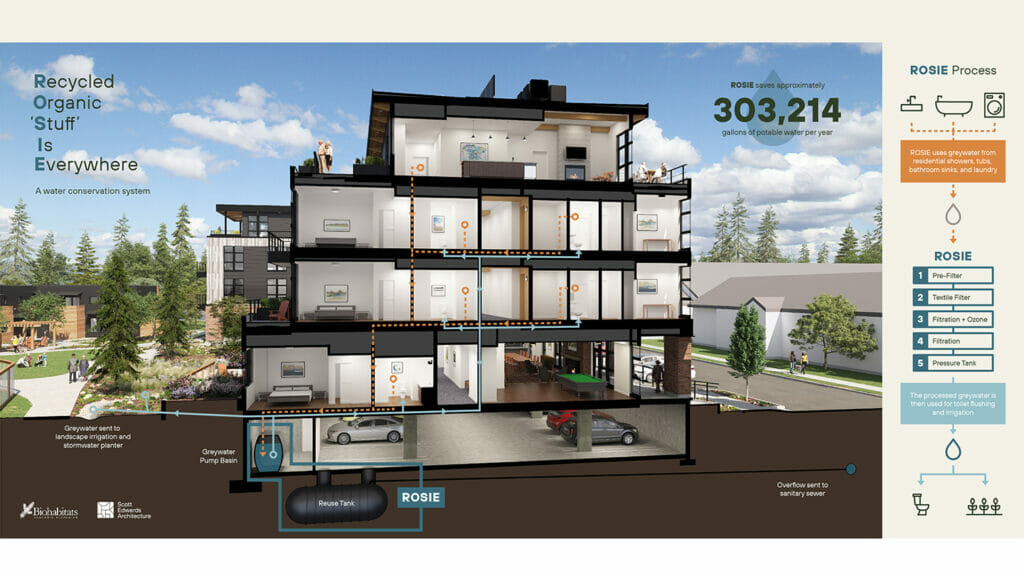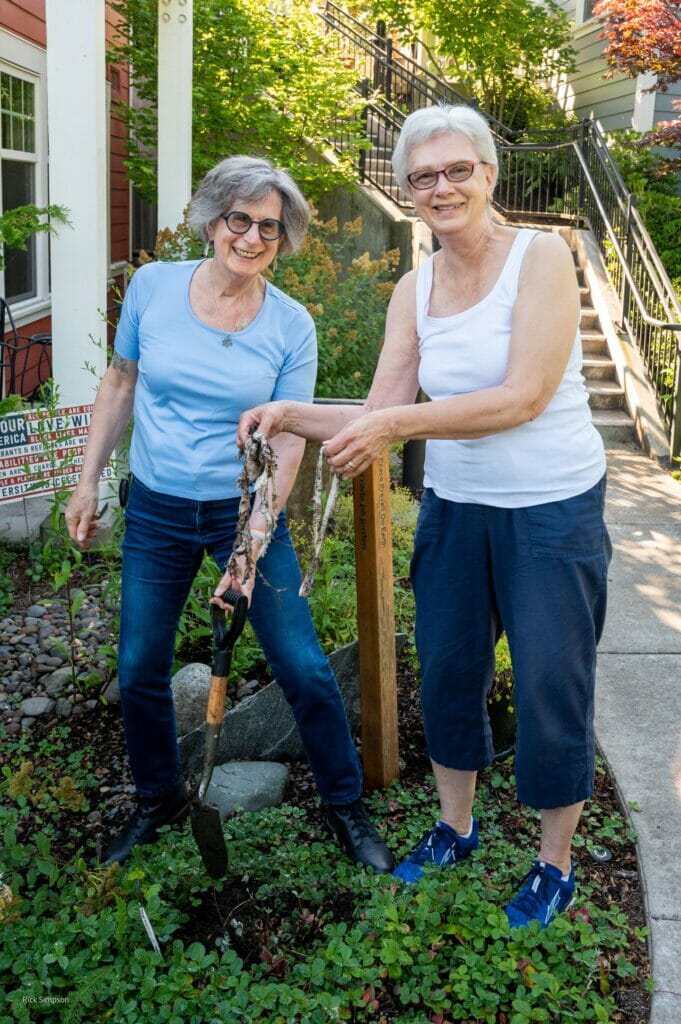
Being good stewards of resources is especially important to residents in the Pacific Northwest, and particularly among the residents of Rose Villa Senior Living, according to the continuing care retirement / life plan community’s leader.
The 22-acre community in Portland, OR, advertises sustainability and social responsibility as “more than a trendy selling point,” CEO Vassar Byrd said Wednesday during a LeadingAge membership call. Rose Villa fosters a sustainable environment and culture that “treads lightly on the earth” while partnering with residents on projects, she added.

What started as a composting project has expanded to several sustainable efforts, including a two-acre, resident-run community garden that supplies fresh produce for the food and beverage department, and a Bringing Nature Home club through the resident council that practices “naturescaping” by using native plants and low-impact foliage in campus landscape.
The campus also implemented a “greywater” reclamation system — called ROSIE (Recycled Stuff Is Everywhere) — used to flush toilets and for irrigation, as well as two net zero independent living neighborhoods: The Oaks, which opened in 2019, and Trillium Townhomes, opened in 2022.
The CCRC uses resident interest and expertise to make projects a reality, said Byrd, a 2020 McKnight’s Women of Distinction Hall of Honor inductee.
“We have conversations with them about ways to change the process to run this community to make it more sustainable, efficient and to engage everyone,” she said. Communities considering similar projects, she added, need to have a long-term sustainability process in place before anything. “It can be harder to engage [residents] in the longer-term process. You have to be more thoughtful because you can run around in circles if you’re not following a longer-term plan,” Byrd said.
All of those initiatives were part of Rose Villa’s redevelopment of its campus. From there, Byrd said, the community is looking at a 10-year plan that involves an audit of the entire campus. The CEO called it a “resiliency action plan” that is a sister to its sustainability plan and will look at how the community can reduce its reliance on outside systems and be resilient in the face of climate change, natural disasters and other factors outside of its control.
Other providers considering embarking down a similar path, Byrd said, need to think of it as educating, not convincing stakeholders.
“It’s really important to start small,” she said, adding that the initial composting project was a 50-50 resident/staff collaboration that created an understanding of the process and goals and was measurable.
Byrd said she goes by the mantra “smaller efforts, small successes, big impact.”
“If elders can’t care for the planet, who in the world is going to?” she asked. “Elders have the perspective. They have the time. Think what you can delegate and partner with residents about, and then call people out. It’s really our job to model how to do this for the rest of the world.”
Intergenerational preschool creates productive resident partnership
Another initiative that feeds into the community’s wellness initiative is the opening of an on-site preschool, Rosebud Preschool, owned and operated by Rose Villa, Byrd said.
Clear research existed that elders — and young children — exposed to high-quality and intergenerational programming had improved social and emotional skills, she said, adding that the programming also decreases social isolation and increases older adults’ sense of belonging, well-being and self esteem.
The preschool, which opened just six months ago, provides opportunities for residents to volunteer for events and enrichment lessons, and it also incorporates collaborative programs through which older adults and children can participate in daily activities and projects, including collaborative artwork, gardening, integrated games, neighborhood walks and story time.
One of Rosa Villa’s residents, a former early education specialist, chose to move into the CCRC after hearing about the intergenerational preschool, Byrd said.
“She helped with the curriculum, the mission statement and getting residents involved,” she said. “It’s been a very productive resident partnership.”


